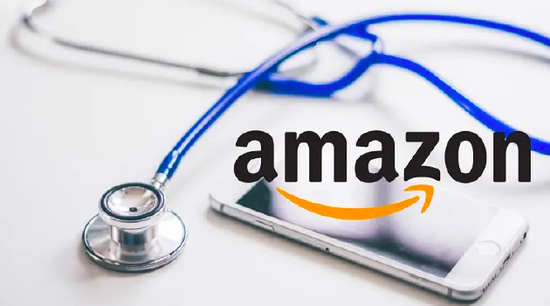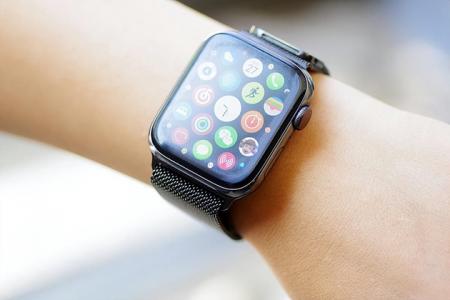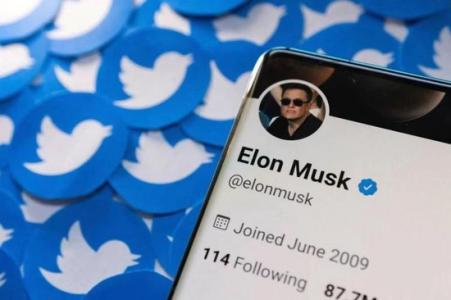your current location is:Home > TechnologyHomeTechnology
The medical industry is difficult to subvert: Amazon Care will shut down Amazon's health care business where will it go?

Amazon is facing another failure in the field of health care.
Initially, Amazon launched Project Haven with JPMorgan Chase and Berkshire Hathaway to try to overhaul the health care system, but it quickly announced its end. Now, Amazon is about to shut down its remote care service, Amazon Care. The company, which works to solve telehealth and primary care problems for employers across the country, has also touted the company's services as winning more and more customers.
Do these situations really prove the prevailing view of the past few years: the healthcare industry is harder to disrupt than most industries?
Maybe not. But it could be a signal of a change in Amazon's strategy in the healthcare industry. The ultimate question about the closure of Amazon Care may be a simple multiple-choice one: Should large companies, especially those with deep pockets of cash, choose to grow on their own, or to acquire as they enter new markets?
From that question, the disappearance of Amazon Care as an independent entity should come as no surprise to healthcare industry watchers. In July, Amazon decided to buy primary care company One Medical, which is doing almost exactly the same job Amazon Care hopes to push across the country. This already shows that something is about to change.
The market value of public healthcare companies has generally fallen recently. One Medical's stock price was as high as $58 in 2021, but Amazon's announced acquisition price is only $18 per share. Amazon is a cash-rich company that has the potential to be more opportunistic than any other company when it comes to planning the future of the next phase of the healthcare business.
Expanding market share through acquisitions and building a larger offline business is nothing new for Amazon, and it is normal for Amazon to choose such an acquisition timing. For example, five years ago Amazon acquired the struggling high-end grocery chain Whole Foods Market. It's worth pointing out that Amazon shares rose on the day the acquisition was announced.
Sari Kaganoff, general manager of Rock Health's consulting practice, said: "The closure of Amazon Care is not surprising. Their vision has always been to have an integrated primary care solution. Now, they have A better solution than they could build on their own.” Rock Healtch invests in healthcare industry startups as a venture capital firm and has a consulting and research division.
Still, it's still somewhat surprising that Amazon announced the closure of Amazon Care before it completed its acquisition of One Medical. One Medical has a bigger market, more offices, and more enterprise customers than Amazon itself. (Amazon seemed to be forced to advertise that its Whole Foods Market was a customer of Amazon Care because it didn’t have many customers.) It’s also surprising that Amazon didn’t merge One Medical into Amazon Care, making it part of the latter. . In contrast, PillPack, which Amazon previously acquired in the pharmacy space, has been merged into Amazon's Amazon Pharmacy.
According to Amazon itself, Amazon Care was a failure. Amazon, at least in internal emails provided to the media about why the business shut down, adopted that argument. Amazon wants to build offline medical institutions nationwide, expand its workforce, and attract corporate customers to sign up, which is not easy. While telemedicine is a good entry point, it cannot provide a comprehensive healthcare solution. Amazon will have to significantly increase investment to build a truly integrated online and offline medical service, including a website, doctors and clinics, and expand to the United States.
Ultimately, it can be assumed that Amazon Care is just a test by Amazon. Once Amazon has learned enough to define its long-term goals, it will be able to acquire better companies during a stock market downturn. "I don't think they failed because One Medical is very good," Kaganov said.
The lesson Amazon learned from this has also shaped the fortunes of many disruptors in healthcare in recent years: Even if you’re one of the richest companies in the world, it’s hard to get an independent startup to succeed in healthcare Based on this, industry consolidation is becoming the only way.
"Amazon Care is no different from any other stand-alone healthcare startup in terms of the integration that needs to be done," Kaganov said. "Amazon just tried it." The company then found out what they thought of the market. Still reasonable, but not implemented in this way.
Amazon’s internal email states: “One of the ways we’ve worked towards this vision over the past few years is through Amazon Care, our emergency and primary care services. During this time, we’ve collected and listened to extensive feedback from business customers and their employees. , continue to optimize the service, and continuously improve the customer experience. However, despite this, we have now clearly seen that Amazon Care is not the appropriate long-term solution for enterprise customers.”
This seems to be what is happening.
Amazon's acquisitions in this regard don't appear to be over. Recent news reports indicate that Amazon is one of Signify Health's bidders. Signify Health overlaps with One Medical's Iora Health business, focusing on a Medicare-centric market that is more complex than standard nationwide care.
It's clear that Amazon still wants to be a strong player in the healthcare space. Amazon could leverage its ability to personalize services, connecting to its pharmacies, ultimately posing a threat to other retail giants looking to disrupt the healthcare industry. On the competitor front, Walmart acquired telehealth company MeMD in 2021; CVS offers telehealth services through a deal with American Well and is also a rumored bidder for Signify Health; Walgreens already owns VillageMD and is opening it across the country Hundreds of outlets.
From a commercialization point of view, this disruption will become more and more intense. Healthcare is a large part of spending, both for consumers and employers. And with the exception of banking, Amazon has been involved in nearly every part of people's spending. What's the biggest market Amazon has yet to tap into? "This is healthcare," Kaganov said. "Amazon already has so much consumer health-oriented stuff that it makes sense to continue to be big in healthcare."
When Haven was first launched, it was believed that a partnership between Berkshire Hathaway, JPMorgan Chase and Amazon could drastically reduce costs across the health care system. At the time, Warren Buffett even called the U.S. healthcare system "a parasite in the national economy." However, Haven announced its termination after three years.
The story in healthcare is also part of Amazon's overall story. Everything Amazon does is partly about reducing costs and improving efficiency. As Cano Health CEO Marlow Hernandez recently put it, "getting better care at a lower cost" is a paradigm shift for all players in the field.
Amazon's consumer internet business may be the ultimate disruptor of business transactions, but the transaction system in health care is under threat, and people don't think of health care as just another form of retail. "What patients want is a comprehensive platform where they can build relationships, not just numbers," Hernandez said.
This is called "value-based care." Perhaps it also shows how disorganized America’s health care system is, to the point that “value” has become a new concept for patients. This philosophy is driving many integrations. Hernandez expects the U.S. primary care market to grow from $1.8 trillion to $3.7 trillion by 2030.
It also explains why big companies like Amazon and its rivals are so focused on this market. "I think it's because of market share," Kaganov said.
The end of Amazon Care does seem a little abrupt. But as Amazon moves from primary care to more complex medical services and even chronic disease care, while combining pharmacies, over-the-counter medicines and everything else, from privately held healthcare startups to Teladoc to retail giants and healthcare giants, All companies are likely to be concerned. The failure of Amazon Care may have cost Amazon and may surprise some, even Amazon insiders, but the business Amazon eventually acquired and grew could still make it an even stronger disruptor.
related articles
Article Comments (0)
- This article has not received comments yet, hurry up and grab the first frame~













